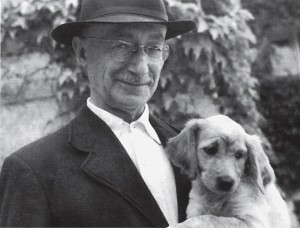UNICEF was born by accident. Within the new organisations put in place after the Second World War, there was no intention to create one dedicated solely to children. However, the winter of 1946-1947 was particularly hard, and children were among those who suffered worst of all. A man, a Polish doctor named Ludwik Rajchman, proposed an innovative solution.
When the United Nations Relief and Rehabilitation Administration (UNRRA), founded by allies at the end of the conflicts, was about to cease its activities, there were some who spoke up during its closing meeting against the catastrophic situation of many children.
The delegate from Poland, Ludwik Rajchman, proposed that the UNRRA’s remaining funds be allocated to the United Nations International Children’s Emergency Fund (UNICEF). It is due to this fundamental action that Ludwik Rajchman is now considered to be the founder of UNICEF.
The career of Ludwik Rajchman
Ludwik Rajchman was a Polish doctor who worked for public health his entire life. Today his name has faded into oblivion because, as he was very politically active, this scientist upset numerous people in what was, at the time, the Eastern Bloc and the Western Bloc. Indeed, during the 1930s, through his involvement in China’s development and his interest in the country’s public health issues, he made himself a number of enemies, which resulted in his exclusion from the great institutions that that he helped to create. Yet, despite his political views, Ludwik Rajchman never abandoned the idea that public health should first be addressed by the eradication of poverty. This architect of modern health policy, who studied at the Institut Pasteur and the Royal Institute of Public Health of London, was the first director of the League of Nations Health Organisation.
After the foundation of UNICEF, his action to help children also spread to France, with the creation of the International Centre for Childhood on which he worked with Robert Debré, reformer of paediatrics in France and inventor of the concept of social paediatrics.
International Centre for Childhood
The purpose of this centre was to promote research into issues related to children, to the dissemination of hygiene knowledge and also to the training of paediatricians around the world, as well as the technical training of specialised personnel. It was the main source of studies on the health of children and families, on children that were vulnerable or at risk, on the rights of children and families, as well as on society.
The International Centre for Childhood remained an important place for training until 1999, when it ceased its activities. Nevertheless, its document base is an important legacy which is now kept in the library of the University of Angers.
Written by: Virginie Hoarau Translated by: Amanda Fearnley Proofread by : Louis Arighi |


